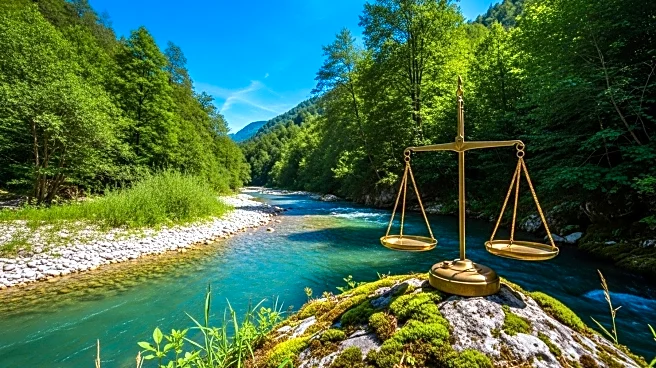What is the story about?
What's Happening?
Chile's Supreme Court has ruled in favor of Andes Iron, allowing the controversial Dominga mining project to proceed after a 12-year legal battle. The court dismissed appeals from President Gabriel Boric Font's government and environmental groups, who opposed the project due to its proximity to the Humboldt Penguin National Reserve. The decision marks a significant milestone for the company, which has faced extensive bureaucratic and judicial challenges. Despite the ruling, the project must still undergo re-evaluation by the Committee of Ministers, which has previously voted against it three times. The Dominga project, initially proposed in 2013, involves a $2.5 billion investment and aims to mine iron and copper, potentially creating 30,000 jobs over its 26-and-a-half-year lifespan.
Why It's Important?
The Supreme Court's decision is pivotal for Chile's mining industry, potentially setting a precedent for future projects facing environmental scrutiny. The ruling highlights the tension between economic development and environmental protection, a recurring theme in global resource management. The project's approval could boost Chile's economy by attracting investment and creating jobs, but it also raises concerns about the impact on local ecosystems and biodiversity. The case underscores the need for streamlined environmental review processes to balance economic interests with sustainable practices, which could influence policy reforms in Chile and other countries facing similar challenges.
What's Next?
The Dominga project will undergo further evaluation by the Committee of Ministers, which has previously rejected it. The outcome of this re-evaluation will determine whether the project can proceed to construction. Stakeholders, including environmental groups and government officials, are likely to continue advocating for stringent environmental safeguards. The decision may prompt discussions on reforming Chile's environmental review process to reduce bureaucratic delays and improve efficiency. The project's progress will be closely monitored by investors and environmentalists, potentially influencing future mining ventures in the region.
Beyond the Headlines
The Dominga case highlights broader issues of governance and institutional efficiency in Chile. The prolonged legal battle reflects challenges in balancing economic growth with environmental stewardship, a dilemma faced by many resource-rich nations. The project's ties to former President Sebastián Piñera add a political dimension, illustrating how political affiliations can influence environmental decision-making. The case may lead to increased scrutiny of Chile's environmental policies and inspire reforms aimed at enhancing transparency and accountability in project approvals.
















